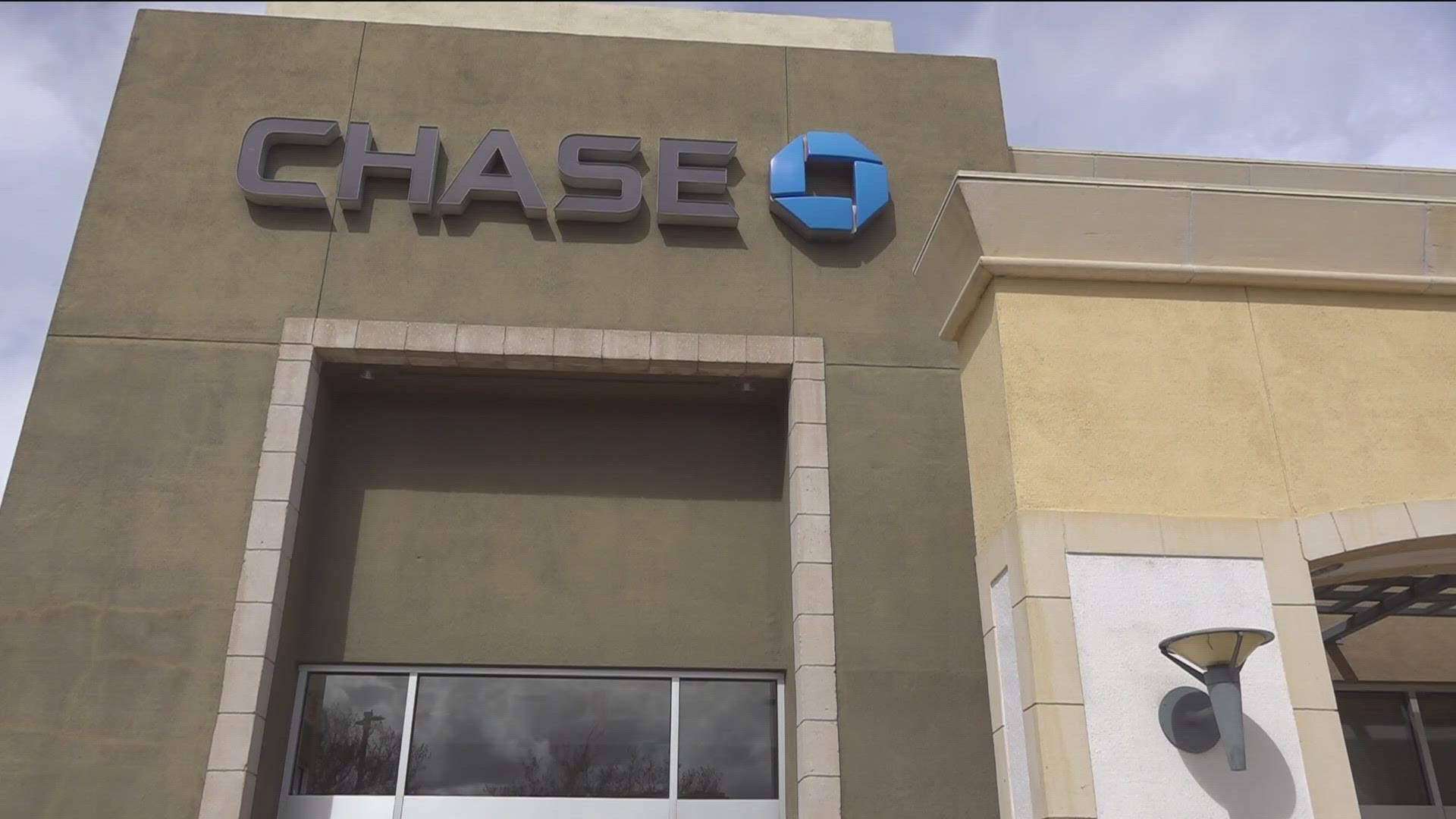VISTA, Calif. — A Vista couple has been conned out of nearly $50,000 in an all-too-common bank scam hitting customers around the state. The couple’s hard-earned money, wired out of their small business accounts at Chase Bank.
Kristal Kuhn received the call on February 15 from a telephone spoofed to look like it came from Chase Bank.
“She asked me if I had purchased something at Walmart for $2,043. I said no,” said Kuhn, who said the caller knew her debit card number and some of her recent transactions.
“They needed to send me an access code in order to verify my identity,” Kuhn said.
Unfortunately, Khun did give the scammer her texted code. She was then put on hold. “It was like five minutes. And then it was like 10 minutes. And I said to my daughter, ‘This has been a little while,’” said Kuhn.
That’s when Kuhn opened her bank app and saw tens of thousands of dollars being transferred between her accounts. She hung up and immediately called the Chase Bank fraud line, and drove to the closest Chase branch in Carlsbad.
“I walked immediately up to a teller and said I have active fraud occurring on my account. I need an immediate freeze on all of my accounts because they're actively doing it. I can see them doing it right now. And she told me, ‘I'm sorry but all of the business bankers are busy right now with customers opening accounts. I don't have anybody for you to see. You'll have to come back tomorrow,’” said Kuhn.
Kuhn said she then drove to a second Chase branch in Vista, only to be told, again, no one was available. Finally, Kuhn said she drove to a third branch in San Marcos, where she did get to speak with a manager.
“She said, ‘I don't mean to make you be alerted or panicked but I see now that there is initiated a wire transfer to a TD Bank in Miami.’ That's when I just started to panic,” said Kuhn.
Kuhn said the fraudulent wire transfer of $49,501 happened while she was on the phone with the Chase fraud department, and while she was inside one of the Chase branches. “I had been there for 3 hours and 40 minutes before a freeze could actually be placed on my account,” Kuhn said.
Scott Pirrello is a prosecutor in the San Diego County District Attorney’s office elder abuse and fraud unit.
"They are spoofing our phone numbers and our text numbers so that it appears that you are talking to someone very official,” said Pirrello.
He advises if you get a suspicious call, disconnect. “Hang up the phone, turn your computer off, and then go and find the phone number for the actual company,” he said.
Kuhn and her husband Dean said they filed a FBI report through ic3.gov and agents are working leads in the case.
Chase Bank emailed CBS 8 the following statement but Chase would not talk about the facts of the case:
These types of scams are heartbreaking. Beware of new contacts asking you for codes, access to your device, or to send them, yourself, or anyone else money to prevent fraud. Chase, other banks, law enforcement, and technology companies won’t ask you to do this, but scammers will. Like cash, wires are final payments and are rarely successfully recalled, once sent.
As a reminder, here’s what consumers and business should remember to protect against scams:
- Protect your personal account information, ATM pins, passwords and one-time passcodes. If someone contacts you and asks for this information, especially if it’s someone claiming to be from your bank, do not share it with them.
- If you want to be sure you’re talking to a legitimate representative of the company that contacted you, call the number on their official website.
- If you want to be sure you’re talking to a legitimate representative of your bank, call the number on the back of your debit or credit card or visit a branch.
- Scammers can "spoof" phone numbers. The caller ID can say the call or text is from Chase even though it's not. Even if your caller ID says a call or text is from Chase, it could be a scam. When in doubt hang up and call us directly.
- Never click on suspicious links in a text or email or grant anyone remote access to your phone or computer.
- Do not respond to phone, text or internet requests for money or access to your computer or bank accounts. Banks will never call, text or email asking for you to send money to yourself or anyone else to prevent fraud.
- Don’t let anyone pressure or threaten you into giving them personal information or money. Hang up or don’t respond.
- If anyone says you must act right now, stop and ask yourself, “Is this how a legitimate company would act?” If something seems “off,” it probably is.
- If you see unauthorized charges on your account or believe you’ve experienced fraud, report it to your bank.
- To learn more about common scams and ways to protect yourself visit: www.chase.com/securitycenter
WATCH RELATED: US Bank reimburses $18K to wire fraud victim

